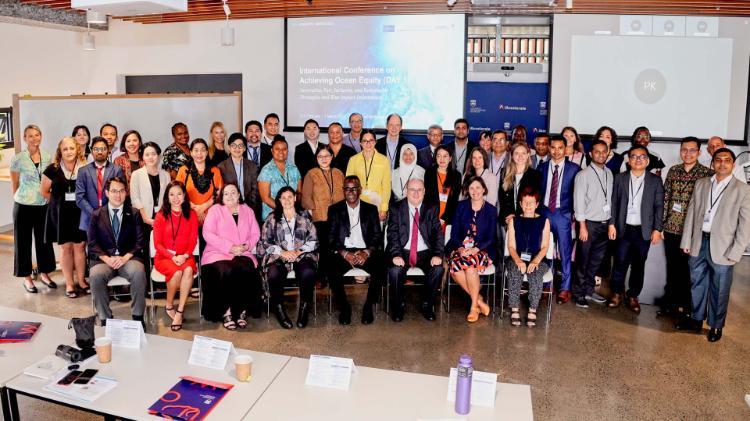Case studies
The University of Wollongong welcomed representatives from 18 countries across the Asia-Pacific region in February 2023 to strategise innovative, inclusive and sustainable policy solutions to advancefor the development of ocean equity in coastal and Small Island Developing States.
The ‘Achieving Ocean Equity: Innovative, Fair, Inclusive, and Sustainable Strategies and Blue Impact Investments’ international conference was jointly hosted by UOW’s Australian National Centre for Ocean Resources and Security (ANCORS), the Asian Development Bank Institute (ADBI), and the Ocean Policy Research Institute (OPRI) of the Sasakawa Peace Foundation.
With its great potential to support global growth, a sustainable ocean-based economy is among the top global priorities for achieving the UN Sustainable Development Goals (SDG’s) and boosting the long-term development prospects of the blue economy.
However, despite advancing innovation in marine biotechnology, renewable energy, and ocean governance, significant development gaps and inequalities remain. The conference was an opportunity to focus on strategies for addressing ocean challenges in a way that creates benefits for local communities and the people that rely on the ocean for their livelihood and wellbeing.

- SDG 1 - No Poverty
- SDG 2 - Zero Hunger
- SDG 3 - Good Health and Wellbeing
- SDG 5 - Gender Equity
- SDG 8 - Decent Work and Economic Growth
- SDG 10 - Reduced Inequalities
- SDG 12 - Responsible Production and Consumption
- SDG 13 - Climate Action
- SDG 14 - Life Below Water
- SDG 17 - Partnerships for the Goals
















